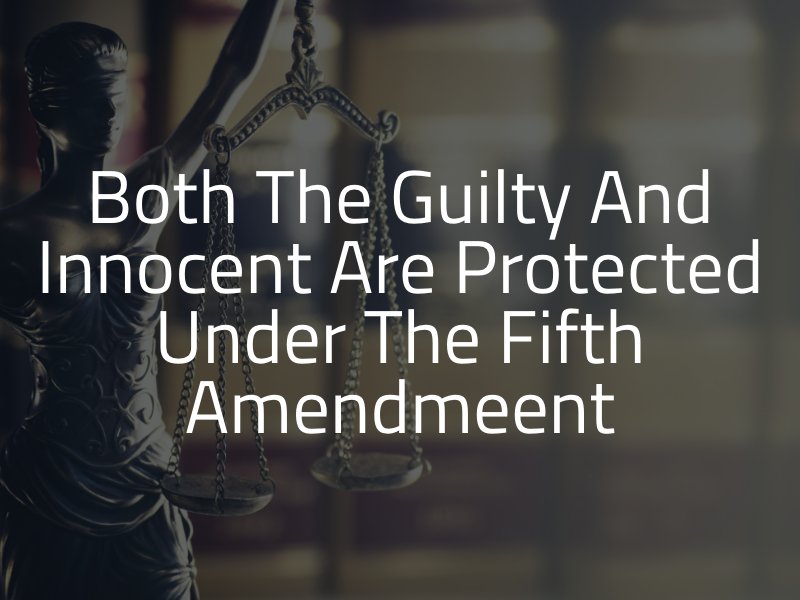Anyone who has watched any courtroom TV drama knows the phrase, “I plead the fifth” by someone on the stand. But what does it actually mean?
In short, pleading the fifth refers to the Fifth Amendment to the United States Constitution, which protects Americans’ right to remain silent or share information with police that may incriminate them while in custody or court. It’s also called “the right against self-incrimination.”
If you find yourself battling criminal charges and determining whether or not you should plead the fifth, you also have the right to an attorney and should hire one. Here is what else you should know about the Fifth Amendment.
The Fifth Amendment was designed to protect the rights of the accused, due process of law, and related complications. It also protects the accused by:
While pleading the fifth is an act of exercising your American rights in the criminal justice system, it does not work in each and every legal case. The defendant charged with a crime asked to testify can plead the fifth and decline answering any questions, but keep these facts about it in mind:
Besides protecting one’s self during a criminal trial, the fifth amendment also applies to:

Even if you are innocent and not guilty, you can still use the fifth amendment’s protection. In fact, when the fifth amendment was created, the framers wanted it to protect both the guilty and innocent.
The Supreme Court also recognizes there may be situations in which an innocent person may choose to invoke the fifth if they reasonably fear that it may incriminate them. A case with the perfect example of an innocent person invoking the fifth is the Supreme Court case of Ohio v Reiner. A father is accused of injuring his baby son, which eventually resulted in the baby’s death, but the father is claiming innocence and saying it was the babysitter’s doing. The babysitter invoked the fifth as the questions that were asked would have put her in an incriminating position, even though she was innocent.
You are not allowed to just invoke the fifth amendment if you do not wish to testify, based on the danger of “imaginary and unsubstantial character.” Essentially this means if somebody brings a lawsuit that is likely based on assumptions, has unrealistic expectations, or even lacks evidence, you have to testify. If you don’t, because of the danger of “imaginary and unsusbstantial character, it can lead to wasted resources or harm to innocent parties. An example is if you are standing at an intersection and see a car crash, you have to testify and can not choose to invoke the fifth.
It may seem like choosing to plead the fifth and remain silent may make a defendant look guilty, but this is not the case. If a defendant pleads the fifth, the prosecutor legally cannot argue to the jury that this implies guilt. Likewise, choosing not to answer questions cannot be used as evidence against the defendant during a trial.
Juries, however, can make their decision based on the defendant’s choice to plead the fifth. Other options for a defendant may just be to answer the prosecutor’s questioning with vague phrases, such as “I don’t know.” The only exception to this are criminal cases. If a defendant invokes the fifth amendment and refuses to testify, it can’t be used against them. The jury needs to have no judgement from this fact and can not use it when deciding the verdict.
If a defendant chooses to take the stand, they can’t invoke the fifth and have to testify on the topics talked about on direct, while witnesses have the option to pick and choose which topics to invoke the fifth.
If you are facing criminal charges, you should plead the fifth until you hire an experienced criminal defense attorney, like the Law Office of David A. Breston, to further discuss your case and the legal options that are best for you. We are here to answer any questions you may have in these complicated situations.